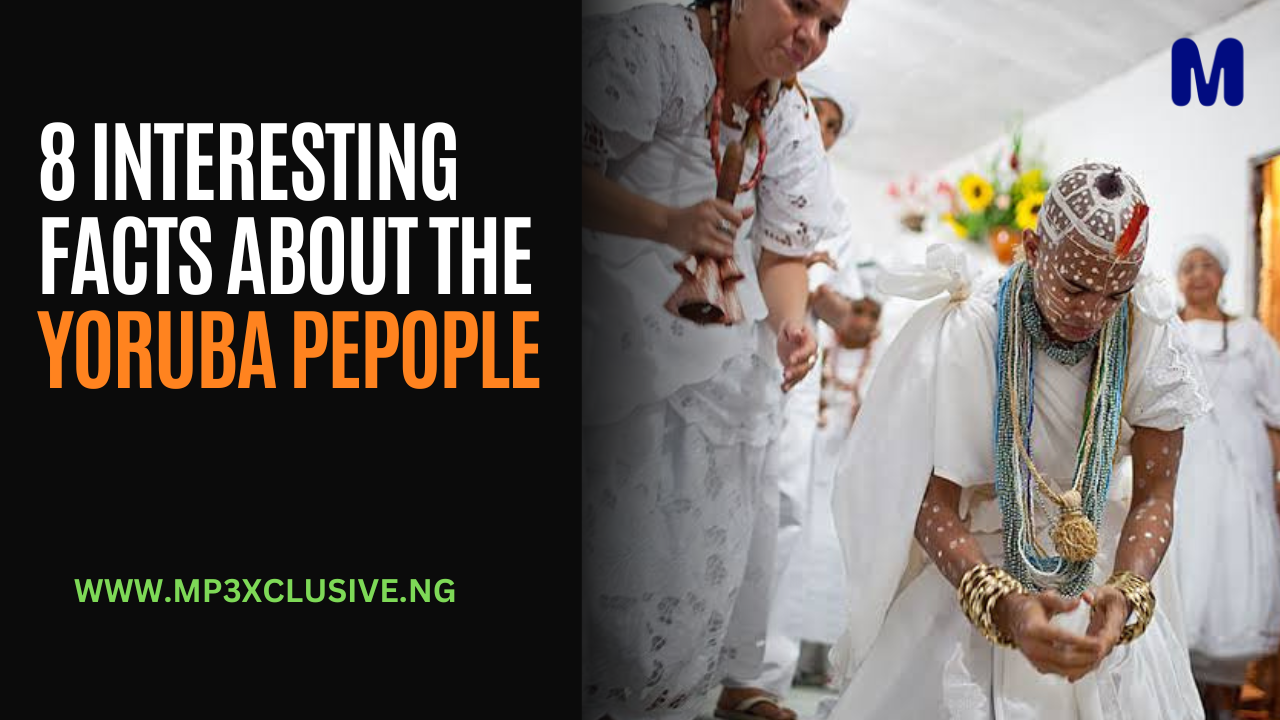8 Interesting Facts About The Yoruba People

The Yoruba are an ethnic group located in southwestern Nigeria and southern Benin Republic in West Africa who share a rich history and culture.

A group of Yoruba people prostrating for Oba Of Ile ife
|
|
| Total population | |
|---|---|
| c. ≈ 50,138,000 (2023) | |
| Regions with significant populations | |
| Nigeria | 42,600,000 (2020)[2] |
| Benin | 1,600,000[3] |
| Ghana | 425,600[4] |
| Togo | 342,500[5] |
| United States | 207,052 (2022)[b][6] |
| Ivory Coast | 115,000 (2017)[7] |
| Niger | 80,700 (2021)[8] |
| Canada | 26,305 (2021)[c][9] |
| Sierra Leone | 16,578 (2022)[10] |
| Ireland | 10,100 (2011)[11] |
| Gambia | 8,477 (2013)[12] |
| Australia | 4,020 (2021)[13] |
| Finland | 1,273 (2022)[14] |
| Languages | |
|
|
| Religion | |
|
|
| Related ethnic groups | |
|
(Yoruboid) Aku · Igala · Itsekiri · Nagos · Tabom
(Gbe) Aja · Ewe · Fon · Mahi · Ogu
(Kwa) Adele · Akebu · Anii · Ga · Kposo
(Nupoid) Ebira · Gbagyi · Nupe
(Edoid) Afemai · Bini · Esan · Isoko · Urhobo
(Gur) Bariba · Losso
(Diaspora) African Americans · Afro-Brazilians · Afro-Caribbean people.
|
|
| Person | Ọmọ Yorùbá |
|---|---|
| People | Ọmọ Yorùbá |
| Language | Èdè Yorùbá |
| Country | Ilẹ̀ Yorùbá |
Here are eight interesting facts about the traditional Yoruba culture:
- According to Yoruba mythology, all Yoruba people are descendants from the hero Odua or Oduduwa.
- The language of the Yorubas, known as Yoruba, belongs to the Congo-Kordofanian language family. The language has many dialects, but most of its speakers are able to understand each other.
- The Yoruba homeland is located in west Africa, with most Yoruba living in Nigeria. There are also some scattered groups in small neighbouring countries, Togo and Benin.
- The Yoruba are one of the largest ethnic groups in Africa.
- The Yoruba are a very sociable and expressive people who commemorate major events with colorful festivals and celebrations. Weddings, naming ceremonies, funerals and even housewarming parties are celebrated in a lavish and ceremonial nature.
- As many as 20 percent of the Yoruba still practice the traditional religion of their ancestors. A large number of modern Yoruba also combine traditional Yoruba beliefs with modern day religions such as Islam and Christianity.
- About 75 percent of the Yoruba men are farmers, producing food crops for their domestic needs. Women help plant yams and harvest corn, beans, and cotton.
- The Yoruba present the highest rate of twin births in the world. This may be because of high consumption of a specific type of yam containing a natural phytoestrogen which may stimulate the ovaries to release an egg from each side. Twins are very important for the Yoruba; they are given special names and inspire wooden sculptures.






